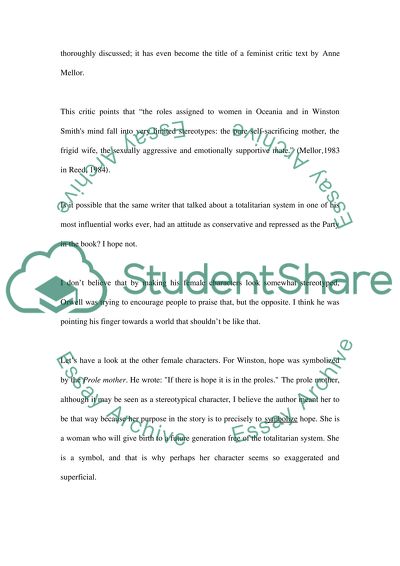Cite this document
(“The Stereotypical Image of a Woman in Orwell's Nineteen Eighty Four Book Report/Review”, n.d.)
Retrieved from https://studentshare.org/literature/1531720-orwells-nineteen-eighty-four
Retrieved from https://studentshare.org/literature/1531720-orwells-nineteen-eighty-four
(The Stereotypical Image of a Woman in Orwell'S Nineteen Eighty Four Book Report/Review)
https://studentshare.org/literature/1531720-orwells-nineteen-eighty-four.
https://studentshare.org/literature/1531720-orwells-nineteen-eighty-four.
“The Stereotypical Image of a Woman in Orwell'S Nineteen Eighty Four Book Report/Review”, n.d. https://studentshare.org/literature/1531720-orwells-nineteen-eighty-four.


